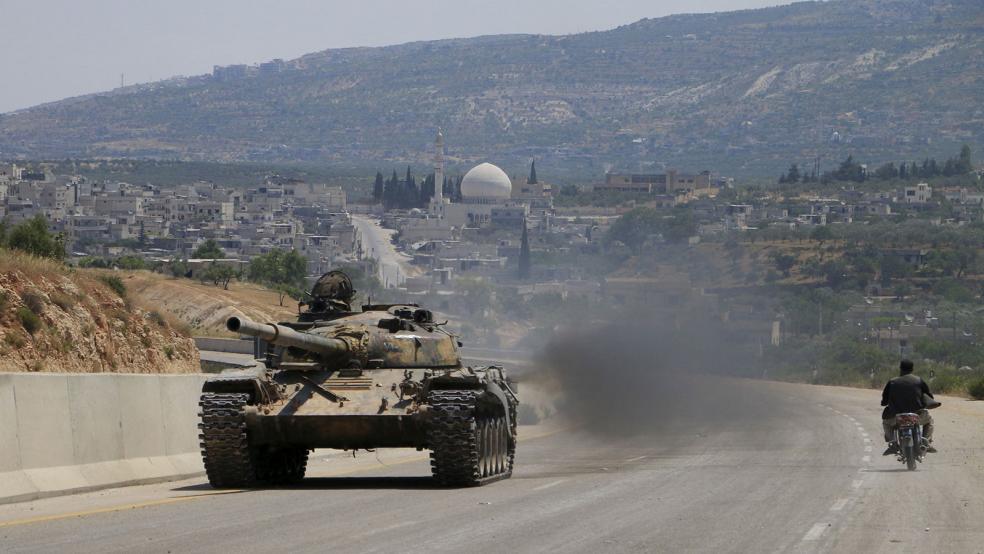There’s no mystery to why members of Congress have avoided having to take a formal stand on the U.S. war against ISIS in Iraq and Syria.
Despite some brave talk from the Obama administration and the Pentagon, the yearlong effort to “degrade and ultimately defeat” the Islamic terrorists is going badly. And now the ISIS affiliate in Egypt is claiming responsibility for last Saturday’s crash of a Russian airliner over Egypt’s Sinai Peninsula that killed all 224 people aboard.
Related: Here’s Why Congress Still Won’t Okay the Wars in Iraq and Syria
While few Republican or Democratic lawmakers were pleased with the Obama’s announcement a week ago that it would send at least 50 U.S. troops into Syria to oversee military operations against ISIS, there is virtually no chance that lawmakers will come off the sidelines and finally pass new war powers legislation that leaves their fingerprints on an increasingly dubious U.S. policy in the Middle East.
House Armed Services Committee chair Mac Thornberry (R-TX) put it bluntly on Monday at a Defense One conference in Washington. While Congress has been negligent in refusing to debate and vote on new war powers against ISIS, Thornberry said, “There’s a real fear of how it’s going to come out” and “the consequences of that in the real world.”
“The reason there’s that concern is we don’t have a clear strategy, that there’s not the confidence,” he added. “So if I’m a member of Congress, you want me to vote to send troops to possibly die, and yet you’re not giving me a strategy on their mission,” he said.
Related: Obama Likely to Leave a Legacy of Three Wars Instead of Ending Two
With lawmakers so confused and fearful of being blamed for the troubled Obama administration strategy against ISIS, it’s not surprising that average Americans are struggling to crystalize their thinking on the war amid this defense policy vacuum in Washington. A new Quinnipiac University national poll on Americans’ attitudes released on Thursday highlights the mixed views on a war that has cost the U.S. more than $2.74 billion or $9 million a day.
There is a difference of opinion over whether it is just a matter of time before the U.S. is struck again by another 9/11 type terrorist attack, according to the poll. Thirty-percent of Americans think it’s “very likely” there will another terrorist attack while 60 percent say such an attack is only somewhat likely or not very likely at all.
There is much sharper division over whom to blame for the rise of ISIS – former President George W. Bush for invading Iraq in the first place or President Obama for withdrawing troops. Sixty-eight percent of Democrats blamed it all on Bush for going to war while 75 percent of Republicans blamed Obama for undermining the U.S. mission by pulling out troops.
Related: How Putin Put Obama in a Bind on Syria
On the critical question of whether the U.S. should send in more ground troops to back up allied militant and rebel forces in Syria and Iraq, Americans say by a margin of 54 percent to 38 percent that they would support such a move – much like what congressional hawks like Sens. John McCain (R-AZ) and Lindsey Graham (R-SC) have called for repeatedly.
There are strong partisan differences over whether the U.S. should send in more ground troops to fight ISIS in Syria. Some 68 percent of Republicans surveyed support sending in more troops, while only 41 percent of Democrats say they are on board for such a move.
The only thing that Americans overwhelmingly agree upon is that the U.S. is losing the war. A full 66 percent of those surveyed said the U.S. is losing the war, compared to only 16 percent who think the Obama administration is on a winning track. Republicans are more adamant about this than Democrats are, but there’s no question the public is feeling grim about the course of the war.





